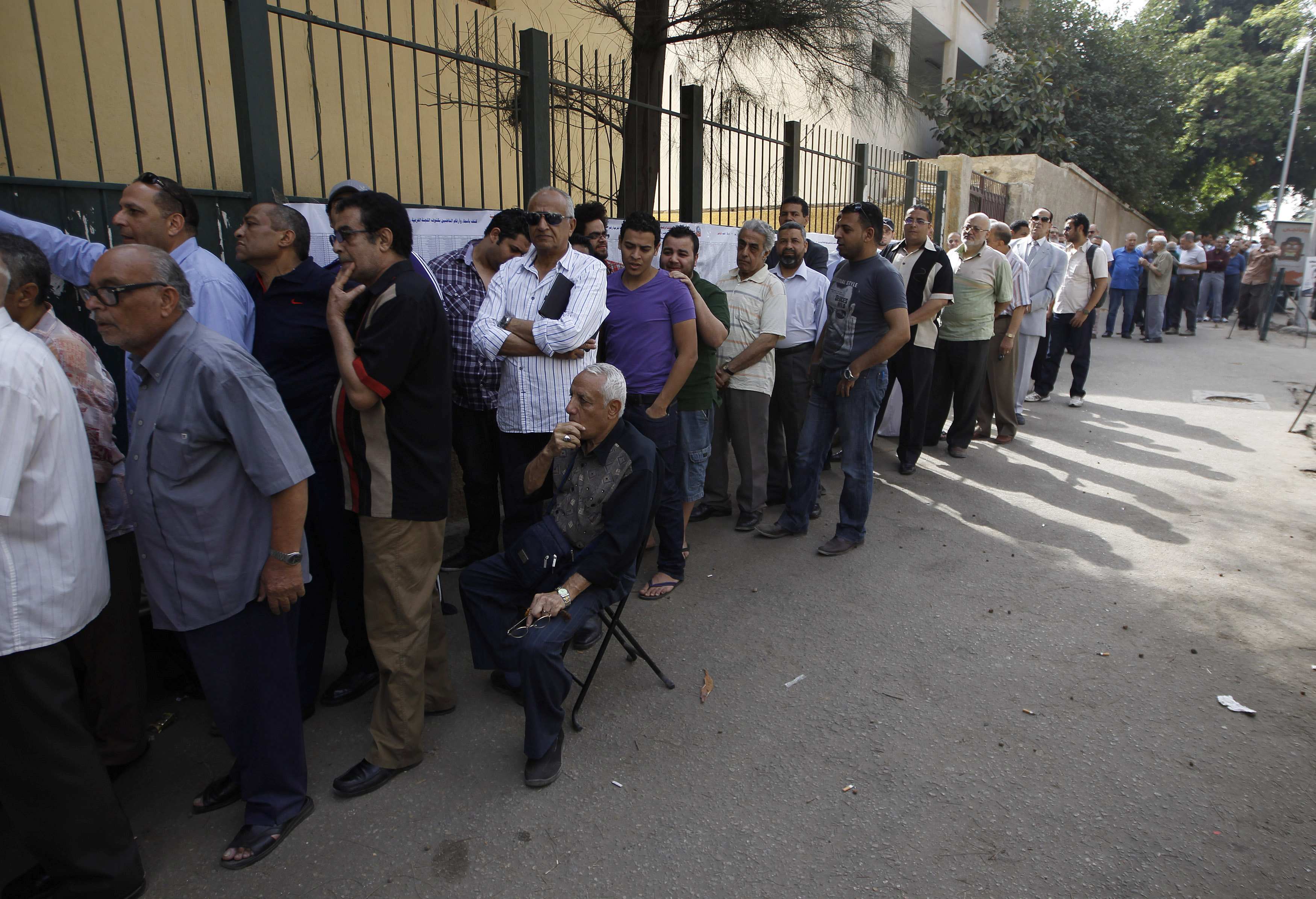Latest NEWS
- Aswat Masriya, the last word
- Roundup of Egypt's press headlines on March 15, 2017
- Roundup of Egypt's press headlines on March 14, 2017
- Former Egyptian President Hosni Mubarak to be released: lawyer
- Roundup of Egypt's press headlines on March 13, 2017
- Egypt's capital set to grow by half a million in 2017
- Egypt's wheat reserves to double with start of harvest -supply min
- Roundup of Egypt's press headlines on March 12, 2017
Voting kicks off inside Egypt in 14 provinces

Men wait in line outside a polling station in Cairo May 23, 2012. Egyptians queued patiently to vote on Wednesday, eager to pick their leader for the first time in a national history dating to the pharaohs, with Islamists and secular-minded rivals who served under deposed President Hosni Mubarak heading the field - REUTERS/Ammar Awad
CAIRO, Oct. 18 (Aswat Masriya) - Amid tight security polling stations opened their doors on Sunday morning for Egyptians wishing to elect members of the House of Parliament in 14 provinces.
These 14 provinces are voting in the first phase of the elections, while the second phase is slated for Nov 21 - 23. Egyptians voting in the first phase abroad have started voting on Saturday and will vote through Sunday.
An improvised explosive device (IED) in the vicinity of a polling station in Fayoum province southwest of Cairo was dismantled by explosives experts, state news agency MENA reported.
In a speech on Saturday, Egyptian President Abdel Fattah al-Sisi called on Egyptians to "line up outside polling stations."
Over 27.4 million eligible voters can vote in the first phase of the elections.
The election race is being observed by 87 organisations which have been granted approval by the Supreme Electoral Commission (SEC), six of them international. SEC has granted permits to 17,000 local observers and over 700 international ones.
Observation missions have the authority to gather information and make a judgement based on the information but do not have the power to intervene or prevent violations.
International observer organisations include Democracy International (DI) which announced less than 48 hours before voting inside Egypt that "some visas for accredited core team members and short-term observers had not been issued and that most visas have not been issued for the duration necessary to observe the entire election process."
DI is still deploying a "limited" mission to Egypt.
There are also 61 embassies in Egypt observing the election race and SEC has announced that 44 press and media institutions, as well as 13 news websites, would be allowed to cover the elections and that 768 foreign media correspondents.
Over the course of the past two years in the absence of an elected parliament, legislative power has been at the hands of Interim President Adly Mansour and current president al-Sisi, which they used to pass some 300 laws.
The incoming parliament is required by law to review these legislations, some of which have been the subject of fierce societal debate, within 15 days of convening, likely in December.
The 2015 unicameral House of Representatives, observers say, will witness the return of the now defunct National Democratic Party members, who dominated parliament under President Hosni Mubarak.
The 14 provinces included in this phase are: Giza, Fayoum, Beni Suef, Minya, Assiut, New Valley, Sohag, Qena, Luxor, Aswan, Red Sea, Alexandria, Beheira and Matrouh.










